CATEGORIES

HOW Jacquemus BECAME THE MAIN CHARACTER OF FRENCH FASHION
Thanks to viral designs, destination runway shows, and a cozy relationship with fame, 35-year-old fashion-school dropout Simon Porte Jacquemus has grown his Mediterranean-inspired indie label into the buzziest brand in French fashion. Now, historic maisons and big tech are circling.

The Candy-Colored Shelves Infiltrating the Neutral Millennial Home
How the once-staid office furniture specialist USM turned shelves themselves into a work of art.
An Underground Icon Comes Out of the Vault
Vacheron's '70s legend, the 222, is back-this time in 2025-approved stainless steel.
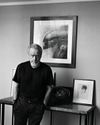
RIDELY SCOTT IS NOT LOOKING BACK
NOBODY IS MAKING BIG MOVIES WITH THE SPEED -OR THE CONFIDENCE- OF THE GLADIATOR AND ALIEN MASTERMIND, NOW 87. HE DOESN'T CARE WHO NOTICES.

THE OFF-THE-GRID ADVENTURES OF WAKTEN DOGGINS
Thirty years into his career, America's favorite character actor has taken a hard turn into leading-man territory—first on the Amazon megahit Fallout, and now in the wildly anticipated third season of The White Lotus. At home in the Hudson Valley, he explains how his latest role took him to the edge.

EVERYONE PAYS THE FANUM TAX
He got big by streaming videos of his gaming exploits. He got huge (like, millions-of-fans huge) streaming videos of his offline life. Now, one of Gen Z's wildest success stories explains his plans to revolutionize the rest of the media landscape.

NOVAK DJOKOVIC BEAT TENNIS mich Bane:
ON this morning in in abundant sunof the Bay of Kotor, wears a white Lacoste rubber sandals, and a blue tint.
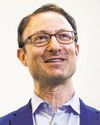
The Guy Behind DeepSeek Blurbed My Book
On Friday, I had never heard of Liang Wenfeng. By Monday, I realized he knew a lot about my work-and I was scrambling to learn about his.
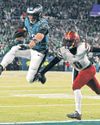
Birds vs. Behemoth: Do the Eagles Have a Shot Against the Chiefs?
Philadelphia and Kansas City book a championship rematch—with NFL history on the line
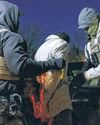
Immigrant Arrests Soar at End Of Trump's First Week
The Trump administration is ramping up arrests of immigrants in the country illegally, government data show.

What Six Families Took With Them As They Fled Fires
Families fleeing deadly Los. Angeles wildfires often had moments to decide what to bring with them. Many never imagined that it would be the last time they saw their homes.

EV Lessons From California Wildfires
Batteries have issues such as recharging lines and blackouts but also benefits such as some being able to power a house

Gazans Survey Damage After Cease-Fire Deal
When a cease-fire took effect in Gaza earlier this month, Ibrahim Raba'a went back to Jabalia-the scene of rounds of intense fighting between Palestinian militant group Hamas and the Israeli military-to see what had become of his home.

Region Turns Traffic Anger On a Figurine
Local's Playmobil creation becomes favorite scapegoat
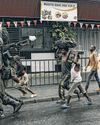
Rwanda-Backed Rebels Enter Congo Hub
Residents report gunfire, shelling in Goma as civilians search for safety
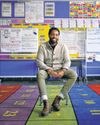
'Pay Penalty' Keeps Men Out of Classroom
Male teachers can help struggling boys, but few men pick profession

Scientists Study Use of Plants in Battery Power
AMHERST, Mass.-Money doesn't grow on trees. But soon the minerals used in the battery of your electric vehicle might.
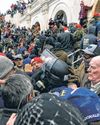
DOJ Fires Lawyers On Two Trump Cases
The Trump-era Justice Department on Monday fired more than a dozen lawyers who worked on special counsel Jack Smith's two prosecutions of the president, while a Trump appointee opened an internal review of the department's decision to charge hundreds of Jan. 6 defendants with felony obstruction offenses in connection with the Capitol attack.

DeepSeek Flips Script on AI
Chinese dark horse emerges, threatening a market darling and other big tech stocks
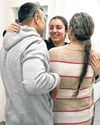
Freed Hostages Endured 15 Brutal Months in Gaza
Some women still had shrapnel in their bodies; some were held alone in tunnels
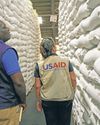
Foreign-Aid Suspension Halts Programs
Trump directive calls for stop-work’ orders, disrupts humanitarian work
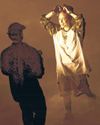
Universal Music Shares Jump After Agreement With Spotify
Companies sign a multiyear deal for recorded music and music publishing

Chinese Investors Turn to Dividends
Companies with good payouts are now the hottest bet in China markets as other options dwindle

Bessent Confirmed To Lead Treasury
The Senate on Monday confirmed Scott Bessent as treasury secretary, putting the longtime investor at the center of President Trump's efforts to cut taxes, fight inflation and impose stiff tariffs on imports.

Ryanair Cuts Its Traffic Growth Target
The Irish budget airline cited delays in deliveries of Boeing planes
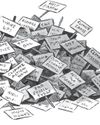
Why Climate Ideology Is Dying
Voters have concluded that the private jet-flying alarmists don’t really believe their own claims. SSCSC“‘SSCS

HAPPENINGS FOR THE WEEK OF JANUARY 28
ARTS CALENDAR

Emerson to Buy Out Aspen Technology
Emerson Electric has agreed to acquire the remaining stock of Aspen Technology, valuing the software company's remaining stake at $7.2 billion.

What's Scarier Than Mahomes Playing QB? Watching Him Run.
Kansas City, Mo. EARLY IN THE FOURTH QUARTER of the AFC Championship, the Kansas City Chiefs found themselves trailing the Buffalo Bills 22-21 and quarterback Patrick Mahomes knew exactly whose number to call for the go-ahead touchdown. His own.
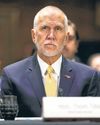
Hegseth Witness Got Assurance From Tillis
Senator said family member's account on abuse could sway nomination vote